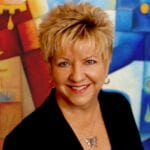
There are always risks and horror stories in any business. But for every risk and horror story, there are lessons in real estate that will help you thrive and succeed. Today’s guest is Nancy Chillag, the founder and CEO of 23rd Street Investors, whose mission is to help people passively invest in commercial real estate. In this episode, Nancy shares with Monick Halm her horror stories and valuable lessons. Since many of her horrible experiences revolve around abusive tenants, you’ll learn why it’s essential to weed out your tenants, ensuring that you get the good ones. Also, never think that you can’t buy the property you’re eyeing for. In her personal experience, Nancy learned that you can always find a way to get the necessary resources to purchase whatever property you need.
—
Watch the episode here:
Listen to the podcast here:
Vital Lessons In Real Estate You Need To Know With Nancy Chillag
I’m super excited to have with me, Nancy Chillag, who is a former attorney, CPA and a real estate broker. She had her own law firm for over 25 years and retired in 2013. She has always invested in real estate, but after retiring from the practice of law, she dove in full-time into her passion. She’s the Founder and CEO of Primary Home Solutions, a company that buys, renovates and sells houses, and 23rd Street Investors, a company that helps people passively invest in commercial real estate so they can retire early, spend more time with their kids and have a more secure financial future. I’m very excited to have her with us. Welcome, Nancy.
Thank you. I’m glad to be here. It’s great talking to you again.
We first met on a cruise for real estate investors a few years ago, and it’s fun that we’re able to have this conversation. Tell us how you got started in real estate investing.
When I first graduated from law school, I was working in San Francisco and I had lunch with a friend of mine. We started talking about real estate. She gets up and runs outside to one of those kiosks that they used to have that advertise real estate for sale because there was no online service. She brought back in this thing. We flipped through it and found a five-unit Victorian in San Francisco and just thought, “It would be cool to own that.” It was seller financing and we had no idea what we were doing. We bought it and managed it for four years. We sold it and quadrupled our money. I never looked back. I got bitten by the real estate bug at that point and I kept going.
I wish I’d had a friend who was like, “Here’s a book. Let’s do this.”
If I knew then what I know now, I may not have done it. You don’t think about a whole lot of horror stories that can happen. You’ve got to do it.
We were talking a little bit about horror stories. I like to ask, what was your biggest mistake and what did you learn from it? I’d love to hear your biggest horror story. It might be the same answer, but what are your big horror stories?
I’ve got many horror stories having done this for over 30 years. I was evicting a tenant and during the eviction process, they stopped paying their utilities. It was winter and they ripped out all the kitchen cabinets and burned them in the fireplace for heat. That was something to walk in after we got them out. I have one going now, which is a horror story. I bought it and I’m flipping a house. I took it with the tenant in there. I usually don’t do that, but I got a much better price on it because the tenant was in thee. When I evicted him, he came back and he ripped out the well. It’s a property that gets their water from the well. He cut down a 30-year-old oak tree. He came in the middle of the night and slashed it. It’s like, “Really?” Those things happened.
I have my horror stories, but I don’t want to scare people reading and going, “Why are you doing this if that’s so crazy?” What’s your answer, why are you doing this?
When you set a goal, go for it. Share on XIt’s a risk for any business. For one horror story, I have 50 great stories. You have to realize that those things happen. When they happen once, you tend to learn from them. Hopefully, they don’t happen again. There are some things you can’t avoid and that’s why you have insurance. You put precautions in place.
What are some of the things that you’ve learned from those horror stories?
Weed out your tenants. Make sure you get somebody that is a good tenant. If you’re flipping properties, try not to do it with a tenant in place that you have to evict because that can get dicey. Those are two things I learned.
Sometimes you cannot get rid of the tenants and you don’t want to. My horror story is an apartment and townhome community that we purchase in Albuquerque, New Mexico. When you’re buying a building, you don’t want to evict all the tenants. It was quite the facility. The day before we closed, there was a drive-by shooting at the property. One of the maintenance guys was shot. They came back and had another drive-by shooting. Thankfully nobody was hurt then, but there were bullet holes in the walls. We had two fires at that property. We had a tenant that put a gun on one of our property managers. We had people break-in. This was a great story. It was Valentine’s day. Somebody broke into one of the empty units. The next day we found rose petals and hypodermic needles. They’re having quite the celebration. It was that kind of building.
It was a lot of work. What was satisfying about it was after months of changing out bad tenants, playing new ones, bring a lot of work to fix it up and make it a nice, safe, secure place, and coming to visit and having the tenants say, “You’re the owner. I’m so happy with the changes you’ve made. My kids are now able to play outside in the courtyard. I never felt safe with them playing outside before. Now they can play outside.” They came like, “I’m having my mom move into that empty apartment over there because they love it here now.” That made it worth it.
Those are the good stories that come out of the horror stories. I had a duplex I was buying, and about two days before the close of Escrow, I got a call from the neighbor because I always give them my cards and say, “Call me if there’s ever an issue.” She called me and said, “I hate to tell you this but your house is on fire.” I go, “What?” I immediately called the Escrow company and said, “Hold the sale.” It turns out that the garage got burned down, but it was a separate structure. It didn’t hurt the house at all. I was able to negotiate a reduction in the sales price for more than twice what it costs me to rebuild the garage. That was good.
There are all sorts of things. It’s a very unpredictable business.
It’s never boring.
It’s not boring, but it can be very rewarding. What are you most proud of?

Lessons In Real Estate: Weed out your tenants; make sure you get somebody that is a good tenant.
My daughters. You’re talking real estate. Growing up, my daughters were not into real estate at all. They’re coming around. My oldest daughter has sold a duplex that she and her husband bought a few years ago. Because the market in Tucson is doing so well, they were able to make a great profit in just two years. They’re hooked a bit.
I hope to get my daughters investing too when they’re older. It’s wonderful to be able to share that. You’ve been doing this successfully for over 30 years. To what do you attribute your success?
My tenacity and my drive. When I set a goal, I go for it. There are obstacles, and if you let obstacles get in your way and stop you, then you’ll never get to your goal. That’s what I mostly attribute my success to and learning from past mistakes. It’s always an education.
There’s so much feedback we get. You learn a lot more when things don’t go right. When they do, that’s good. If you get the lesson, then it’s worth it. What advice do you have for a woman who’s just starting out in this field?
Don’t think small. When I started out, I assumed I would buy single-family homes. I bought that one five-unit building. When I say small, don’t think that you can’t invest in a 100-unit or 50-unit apartment building. The reality is the effort it takes to do that is almost the same as buying a single-family home. There are a few more moving pieces, but don’t think that you can’t do something. Look around and assume that anything out there that you want to buy, you can buy. It’s a matter of figuring out how to do it.
A lot of people have, and I had that too, the Monopoly Game theory of how you have to invest. First, you need a little green house and a little greenhouse. When you have enough greenhouses, then you can get the red hotel. I found out that you don’t have to do it that way and the big red building is not harder than the greenhouses. In certain cases, if you’re self-employed and you’re not a W-2, it could be easier even to do bigger. That was game-changing for me. It’s good advice.
I loved doing the real estate. It was fun for me to do the negotiations, to buy a house and then to rehab it and either rent it or sell it. I liked doing that, but what I would have done alongside that as I saved up money from working, I would have invested passively in large apartment buildings or some multi-family unit and had that as passive income, and done both as opposed to having 50 single-family homes.
That’s something I wish I’d known about earlier too. I didn’t know that syndication existed. I didn’t know that you could own a piece of a large property. When I found out, I was like, “Why did I not know about this before?”
I knew it existed. The issue was I’m a control freak. What I realized, and I didn’t realize it then, is that you can be in control by choosing the right people that you’re investing with. As long as you’ve checked them out, feel comfortable with them, and they’re the type of people you want to do business with, then you can go in as a passive investor. If it’s somebody that you don’t trust, you don’t know or you haven’t done your research, then you don’t have as much control. That’s the thing. I knew about it but I was afraid of not being able to control the whole project.
Learn from your past mistakes; it's always an education. Share on XI love passively investing now. It’s so relaxing once you have vetted the team. It’s like, “Okay, they’ll do it.” You wait for your money to come back with friends. We’re both active syndicators, so we’re on the active side as well. I have mostly my retirement funds in passive deals. It’s great. What do you wish you’d known at the beginning that you now know?
I don’t know if it’s so much know, but what I would have done was started investing for cashflow right away as opposed to appreciation. Appreciation is great but you can’t count on it. My attitude when I started investing was, “I’m making this great money as an attorney. I don’t need passive income.” Therefore, I’m going to invest for appreciation. That can come back to bite you if you’ve gone through the 2008 meltdown. It’s like, “What happened to all that appreciation?” Fortunately, we bought smart at that time, and we were able to weather through that. If I was starting out again, I would buy for cashflow even though I don’t need the cashflow. It’s tax-free because of the depreciation and knowing that you’ve replaced your salary, if you want to go part-time or you want to quit altogether or you just want more income, it’s great. It takes a lot of pressure off. That’s what I would have done.
I started investing in California too. I didn’t realize at the beginning that you didn’t have to invest where you lived. In an expensive market like LA, I was thrilled when I didn’t lose money on my properties. If it paid for itself, I felt like I was winning. It’s like, “It breaks even,” and I get appreciation. This thing called cashflow, I didn’t know that was even possible.
When the market is going up, that’s what happened with the mortgages. People were getting into the negative amortization mortgages where they weren’t paying down the full mortgage. They were just breaking even on the property. They kept seeing all these dollars add up in appreciation for several years, and then it fell apart. Their mortgage started having a higher interest. It was something they could not get out of. They could not make higher payments. The negative kept getting bigger and bigger. They couldn’t refinance and they have to walk away. My advice is to start making sure you’re getting cashflow. If you get appreciation, it’s great. It’s a bonus.
Before we get into our famed end of show, Trinity, which is a brag, a gratitude and a desire. How can people connect with you and find out more about what you do?
They can go to my website at 23rdStreetInvestors.com, and read about our company, how we operate, find out more about me and my advisory team or my partner. Take a look at a sample of our portfolio. They can download my free eBook about Why Real Estate Investing Is Right For You. They can get in touch with me there.
It’s time for our Trinity. What are you celebrating now? What’s your brag?
I kicked off my own podcast. Most of the episodes are just me giving real estate advice to new investors or at least investors new to syndications. I’m happy with that. I’m starting to sprinkle in interviews and we’d love to have you as a guest one day.
It’s my pleasure. What’s the name of your podcast?

Lessons In Real Estate: Don’t think that you can’t do something. Look around and assume that anything out there that you want to buy, you can buy. It’s a matter of figuring it out and having to do it.
It’s called The Artful Investor.
What’s one thing you’re grateful for?
I’m grateful that people trust me with their money. As a lawyer, it takes years to develop that trust with clients. Once you have that trust, they never leave you. I’m glad that has come over to the syndication side. People are willing to trust me with their hard-earned money to invest it wisely for them in syndications that I’m working on.
Last but not least, what is one desire?
To be able to travel again. This COVID thing, I’m so done. I can’t wait to get on a plane and go to Italy.
So shall your desire be or so much better than you can imagine. Thank you so much. This was great. You can connect with Nancy at 23rdStreetInvestors.com. You can connect with me at REIGoddesses.com. If you’re interested in finding out about our passive investing opportunities, join our free Investor Club to get on the list to find out about our opportunities, and subscribe and like. If you found value here, please share this episode with a friend and join us for another interview. Thanks.
Thank you.
Important Links:
About Nancy Chillag

Nancy Chillag is an attorney, CPA and real estate broker. She had her own law firm for over 25 years and retired in 2013. Nancy has always invested in real estate, but after retiring from the practice of law she dove in full time to her passion. She is the founder and CEO of Primary Home Solutions, a company that buys, renovates and sells houses, and 23rd Street Investors, a company that helps people passively invest in commercial real estate so they can retire early, spend more time with their kids and have a more secure financial future.
Love the show? Subscribe, rate, review, and share!
Join the Real Estate Investor Goddesses Community today:





